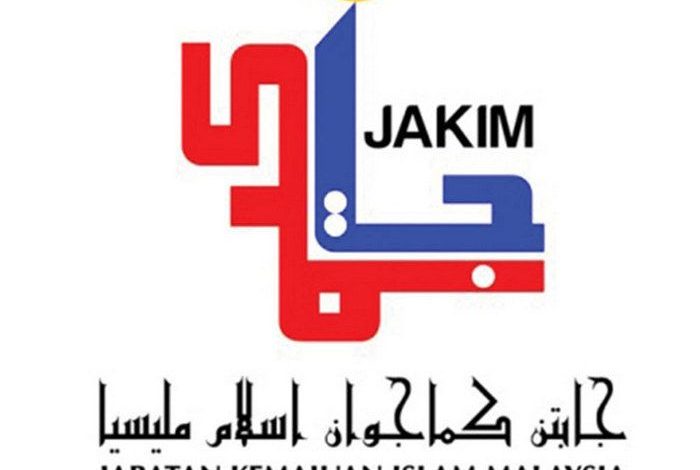Editorial: Religion is Everything


Religion, in particular Islam, has become so entrenched in our society today. For a baby-boomer like me, the change is so dramatic. If someone from my era were to wake up after a long coma he or she would be shocked by what that greets him/her. It will be humbling for me to say that it is just a passing phenomenon or perhaps a fad.


Soon after he became Prime Minister in 1981, Mahathir embarked on making Islam part and parcel of the government. He established an Islamic university, started an Islamic banking sector, strengthened Islamic jurisprudence and placed Islamic affairs under the Prime Minister’s Department.
Thirty-eight years later it has created an unassailable Islamic bureaucracy that is independent of the Executive, with unlimited funds not inclusive of federal and state allocations. Elected governments, even the Pakatan Harapan coalition that ousted the then ruling coalition, Barisan Nasional, does not dare to trim the size of the bureaucracy due to a potential political backlash from ultra-Malay-Islamic groups across the country.
This is a radical change from post-independent Malaya in 1957, when Tunku Abdul Rahman, who loved horse-racing and partying, was the premier and entertainers like P. Ramlee, SM Salim and Hamzah Dolmat dominated the local entertainment scene.
The Islam resurgence began in the early 1980s when ethnic Malays, buoyed by the Islamic revolution in Iran, were becoming more religious and Malay social codes becoming Islamic-orientated. Malay women began covering their heads, Arabized dress started becoming the norm. The Malay language was similarly transformed.
An astute Mahathir saw this being translated into growing support for the rural-based ‘Parti Islam se-Malaysia’ or PAS. So in 1982, Mahathir recruited the popular Anwar Ibrahim, who was president of the Malaysian Islamic Youth Movement (ABIM) into his party UMNO to strengthen his Islamic credentials. Anwar moved through the political ranks rapidly becoming Deputy Prime Minister in 1993.
The Malaysian Constitution states that Islam is the official religion of the nation and the freedom of religion is supposedly guaranteed. Under the constitution, ethnic Malays cannot convert to any other religion unless the Sharia Court grants permission. Islam is a matter for the states to regulate and each head of state or sultan is also the leader of Islam.
As Islam is a state responsibility, each state has a multi-department which issues fatwas based on interpreting the Quran, hadiths and Sunna, maintains mosque operations, and identifies and controls the spread of deviant Islamic teachings. State Islamic Departments are responsible for family law, mosque maintenance, Sharia enforcement, education, and general Islamic affairs. Each state will also have an agency and Islamic foundations which invest in Islamic insurance, Islamic education, and the spending of Zakat monies. The operations of these business arms are substantial.
Although each state government has an executive council member responsible for Islamic affairs, the Mufti and State Islamic Departments tend to run autonomously without political interference.
During Mahathir’s first tenure, the Division of Islamic Affairs was upgraded to the Islamic Development Department of Malaysia (JAKIM). With a Director-General in charge, JAKIM became responsible for Islamic affairs in all Federal Territories. Its aim was to maintain the purity of Islam, coordinate law enforcement and oversee halal regulation.
Within JAKIM is the National Fatwa Council made up of state Muftis and an additional five Islamic scholars selected by the Conference of Rulers. Once a fatwa is approved by the Conference of Rulers and gazetted, it becomes legally binding within the Federal Territories.
Fatwas cannot be challenged although there have been many cases of contradictory fatwas issued by muftis, albeit small.
JAKIM and the state religious departments have strong connections with the police. This relationship is outside the control of ministers and state executive councillors. The Selangor Islamic Department (JAIS), for instance, conducted raids with the police in 2014 on the Malaysian Bible Society that were embarrassing for the then-opposition Pakatan state government in Selangor.
These massive state and federal bureaucracies are directed by unelected bureaucrats and muftis. Their modus operandi is based on their individual interpretation of the Quran, Hadiths, Sunna, and Fiqh texts, which cannot be challenged. The royal connection is the primary reason.
The nexus here is Islam-Royalty-Malay Rights which is a completely unchallengeable platform in Malaysia. This enables certain agendas to be carried out that are not even trusted to the political parties of the country. This is the core of the deep Islamic state within Malaysia. A massive group of civil servants are loyal to this philosophy rather than flag and modern nationhood. This is an almost unmovable barrier to any sense of secularism in Malaysia.
The disappearance of Pastor Raymond Koh in 2017 was believed to have been undertaken by the state. The further disappearances of Pastor Joshua Hilmy and his wife Ruth and that of Amri Che Mat, a Muslim activist abducted by masked men in unmarked cars in Perlis, remain unexplained.
Tun Mahathir is unperturbed about the matter although he had said that JAKIM’s stranglehold on the rakyat needs to be loosened.
Soon after Pakatan Harapan’s victory following GE-14, calls by eminent Malays known as the G25 were made to the Conference of Rulers to review the functions of JAKIM. This was resisted. Mahathir announced in July 2018 that there would be an inquiry into the functions of JAKIM and was attacked by the Malay Rights group Pemantau Malaysia Baru, led by Lokman Adam (Lobakman). Until now nothing is heard.
When Pakatan Harapan first came into office, Mujahid Yusof Rawa, the minister responsible for Islamic affairs, tried to rein-in JAKIM’s enforcement activities, but after much criticism, he backed off.
This has inhibited national debate about important Islamic issues. Issues relating to ethics, social justice, equity, corruption, alleviation of poverty, education, and racial tolerance from any Islamic perspective are being glossed over in favour of more trivial issues.
Sadly, there is little real debate regarding social, spiritual and economic evolution of what Malaysia should be. The paradox is that there is actually little Islamic influence upon policy and decision-making within the government. The grip on bureaucracy and the Executive are too difficult to undo.
Both Anwar and Mahathir helped create this deep Islamic state. When both are gone this will, ultimately, be the enduring legacy they leave behind. It is definitely frightening.


